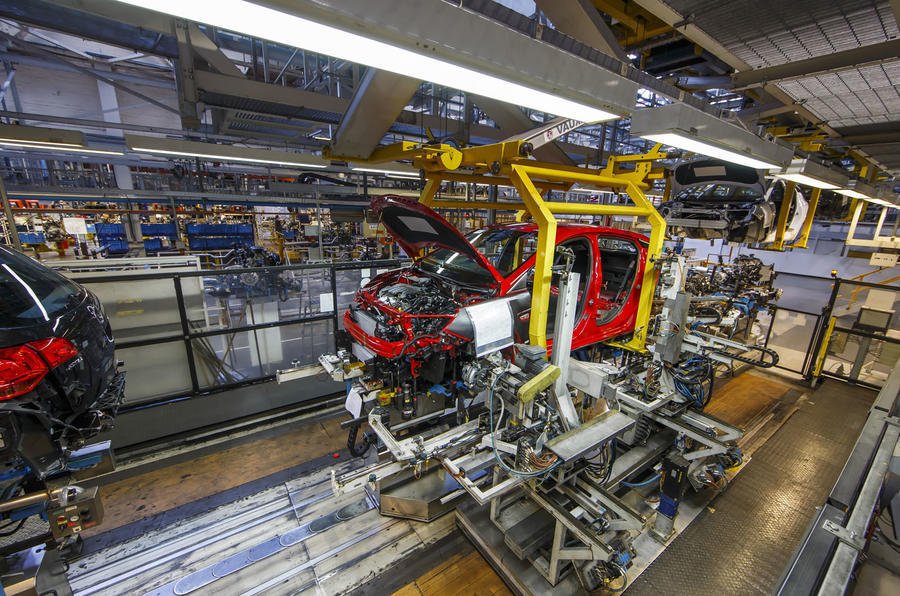It would be "really tough" and require "significant investment" for the UK to return to its recent high point of 1.7 million cars built annually.
That's according to the Society of Motor Manufacturers and Traders (SMMT) boss Mike Hawes, who announced that UK car production in 2020 fell below one million units, to 920,928, the lowest level since 1984.
However, while production plummeted in 2020 off the back of the pandemic, the year also brought with it clarity around two key parts of the UK's future: its trading relationship with the European Union after Brexit, which has seen tariff-free trade continue; and the 2030 ban on the sale of all non-hybrid and non-electric cars by 2030, and the sale of only electric cars from 2035.
Both of those now provide manufacturers with clarity when it comes to making investments in the UK, although Hawes cautioned that, even so, the high point of 2016 would be a very tough target to ever recover to.
"With Brexit in 2016, we went into that period of uncertainty in a reasonably good place as manufacturers had made decisions on upcoming model cycles," said Hawes. "Then Brexit took longer, so we always expected to see investment and volume dropping. Now we are at the end, we want to recover that."
To secure investments in new models and upgrades to factories to build the next generation of electrified models, Hawes said the UK needs to prove it is a good place to invest in again.
One way is to "drive down costs", he said, through things like business rates and energy costs. The flexibility of the workforce and productivity are other key areas, as is upskilling and training the workforce in building high-voltage vehicles. A country's tech and R&D focus can also drive innovation, while a strong domestic market in which to sell cars is also important, because around 20% of a factory's production usually stays in its county of origin.
Do all that, said Hawes, and "you're in a good place", having "created a framework to encourage that investment – not just manufacturers but supply chain as well."
However, even if the UK can do all that, Hawes said the automotive manufacturing industry's current position is as much about trying to retain what is already here as attracting outside investment. To that end, it will be "very, very tough to get back to 2016", he said, but the UK has not lost its critical mass for manufacturing because "even at this level, there's more than critical mass".
He added: "We're looking to grow it from this lowest ebb. Hopefully, it is that."









Join the debate
Add your comment
Couldn't agree more, it's been said, because of COVID, that online sales were good, well, what's wrong with that?, maybe a few less sales people sitting in expensive to run Showrooms isn't such a bad idea?, why not just when you've chosen a vehicle to try, you just turn up, have a test drive, having agreed a price online,and, if you like it, sign on the dotted line.
Even large manufacturers admit that the industry overproduces, so maybe we shouldn't be looking to get back to 2016 levels anyway. Mt Hawes might have to get used to the idea of lower levels of production going forward.
Absolutely. We don't need to buy so many used cars, and it's a terrible waste of resources. It does keep people employed in relatively high paying jobs, however.